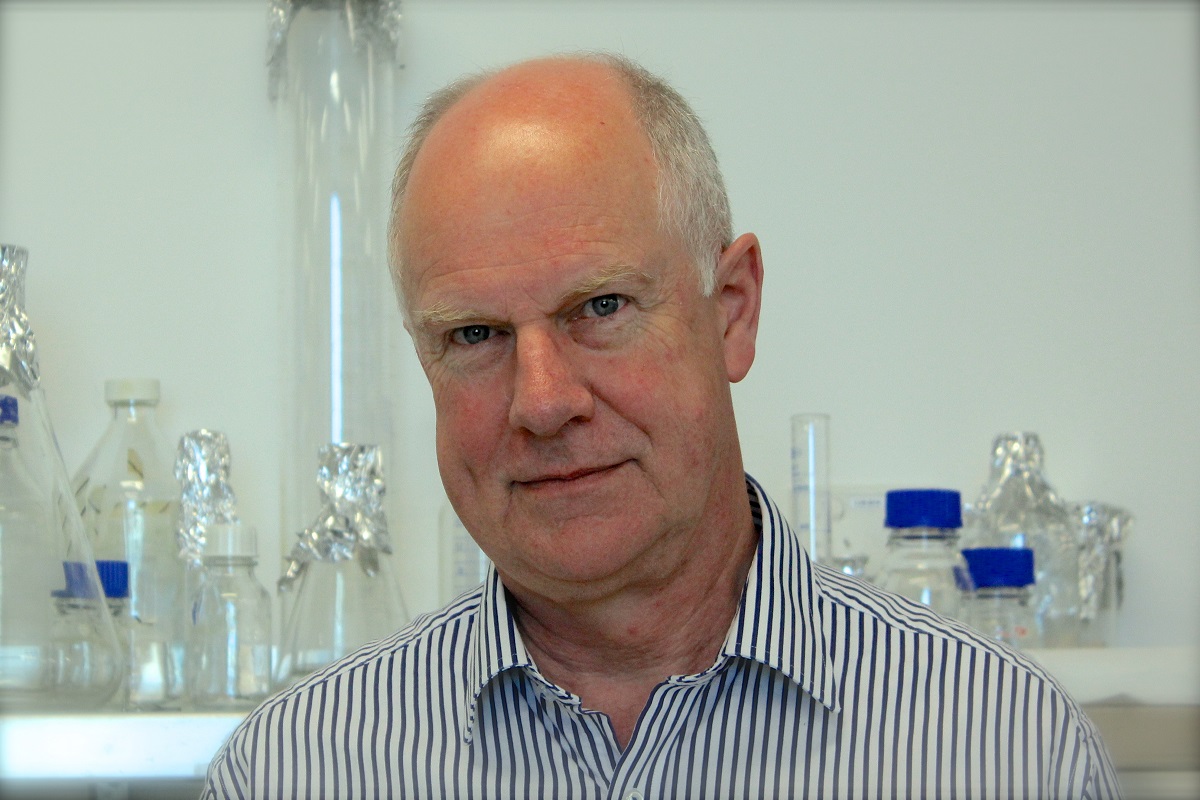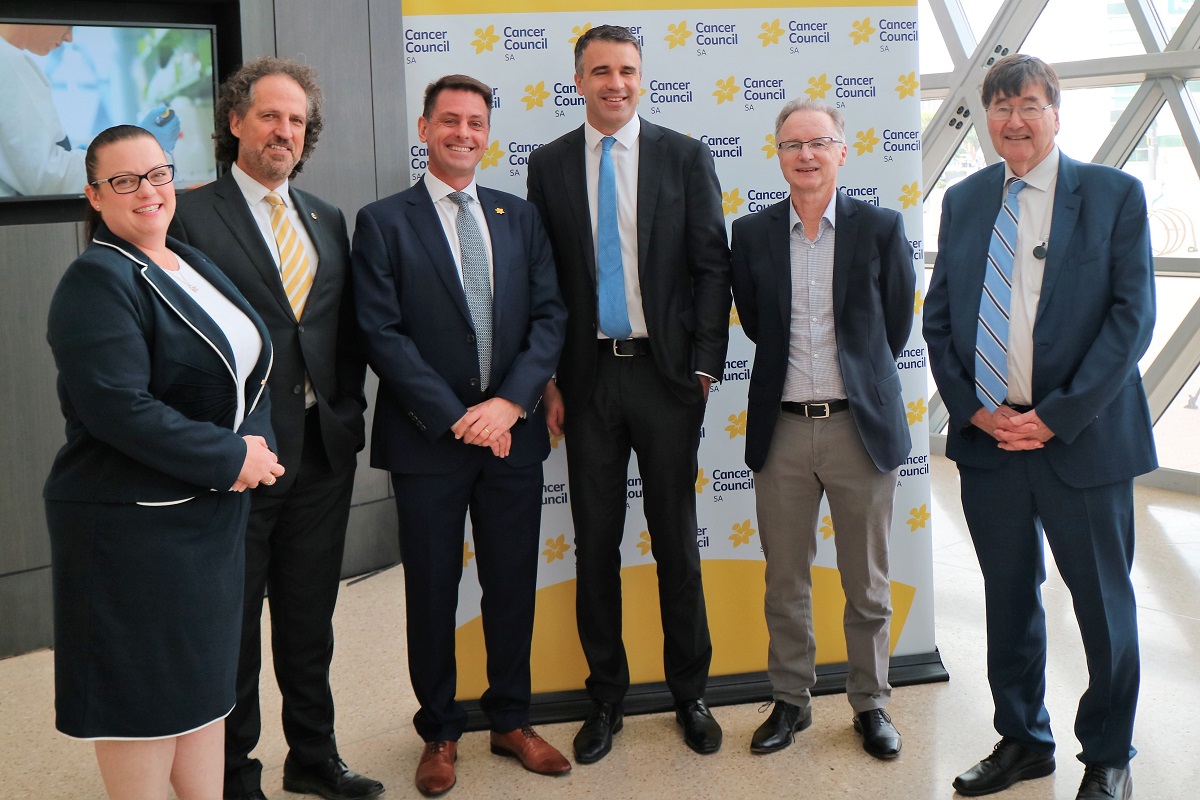
A new research project that will improve treatment for the most deadly types of gut cancer has been successful in the latest round of Beat Cancer Project grants from the Cancer Council of South Australia.
Led by Flinders University Professor David Watson from the Discipline of Surgery and Flinders Centre for Innovation in Cancer, the project will specifically address new and better ways of treating cancer of the oesophagus and bowel, two major gut cancers in Australia.
Gut cancers account for more deaths than any other cancer type and are often diagnosed too late for modern medicine to treat them effectively and prolong life.
As such many patients with gut cancer have a poor prognosis.
This is because gut cancers are genetically complex and mutate quickly, unlike genetically more homogeneous cancers such as melanomas and leukaemia which have a better outlook as they respond better to new targeted treatments.
Professor Watson and his team will be using their new funding to develop more cost-effective prevention strategies, as well as more tailored treatment pathways for those living with gut cancer.
“Currently most cancers are managed using a ‘one size fits all’ approach, where treatment is offered according to cancer type and stage, rather than likely response,” says Professor Watson.
“As we don’t currently know who will respond to current treatments, some patients with oesophageal cancer, for example, undergo treatment for little benefit, and treatments can even undermine their quality of life.
“The evidence shows that for every patient with oesophageal cancer who benefits from chemotherapy and radiotherapy, up to 12 patients experience no positive gain, and some can be harmed.
“We aim to develop a more customised approach, whereby gut cancer is diagnosed earlier and those at high risk of developing gut cancer are identified sooner, and receive treatment at an earlier stage when it is likely to be more effective,” Professor Watson says.
To achieve this, Professor Watson and his team will analyse the health outcomes of gut cancer patients from the last 20 years in South Australia and will use this data to refine mathematical models that will determine whether or not changes to care are likely to be clinically advantageous and cost-effective, and thereby improve survivorship.
Changes that are shown to enhance health outcomes while being safe and cost-effective will then be recommended for introduction into clinical practice.
“Our ultimate aim is to innovate an integrated course of care that encompasses prevention, early detection, treatment and survivorship in a single program, something that doesn’t currently exist for patients at risk of oesophageal and bowel cancer in South Australia,” Professor Watson says.
Entitled “Improving gastrointestinal cancer outcomes: prevention, treatment and survivorship”, Professor Watson’s project is funded by a $380,000 Beat Cancer Project Translational Research Grant.
Flinders University has matched this grant by investing a further $380,000 into Professor Watson’s project.

Other Flinders University staff who have been awarded Beat Cancer Project grants in the 2018 round include:
- Professor Ross McKinnon, Director of Flinders Centre for Innovation in Cancer, who has received $1 million to continue his role as Beat Cancer Professorial Chair for Flinders University and innovate prevention, early intervention and treatment strategies for all cancers.
- Dr Ganessan Kichenadasse and Professor Chris Karapetis from Flinders Centre for Innovation in Cancer, who are co-investigators on a $280,000 Clinical Trial Enhancement Grant led by Country Health SA, which will introduce a clinical cancer trial model to Mount Gambier Hospital in an effort to address the gap in access and availability of therapy options in country areas.
- Dr Lauren Thurgood, Research Associate at Flinders Centre for Innovation in Cancer, who has been awarded a $240,000 Early Career Fellowship to help develop new diagnostic tools and treatment strategies for leukaemia.
- Dr Lisa Beatty, Post Doctoral Research Fellow at Flinders Centre for Innovation in Cancer, who has won a $75,000 Project Grant to determine whether a web-based psychological intervention for women with advanced breast cancer can improve wellbeing and reduce healthcare use.
- Ms Ashleigh Hocking, Research Assistant at Flinders Centre for Innovation in Cancer, who has been awarded a Travel Grant to support her research into the treatement of mesothelioma.
- Dr Emma Kemp, Research Associate at Flinders Centre for Innovation in Cancer, who has also been awarded a Travel Grant to further her research into the care needs of breast cancer survivors and their caregivers.
About the Beat Cancer Project
The Beat Cancer Project is a South Australian state-wide initiative intended to support and advance cancer research within the state. It is funded by Cancer Council SA and the South Australian Government (through SA Health) and administered by the South Australian Health and Medical Research Institute (SAHMRI).
The objectives of the Beat Cancer Project are to increase funding for cancer research, increase the capacity for researchers to attract more national and international research grants, and build a stronger cancer research workforce and broader research infrastructure in South Australia. The ultimate goal of the scheme is to find more ways to beat cancer and improve the quality of life and survival rates for people with cancer.

